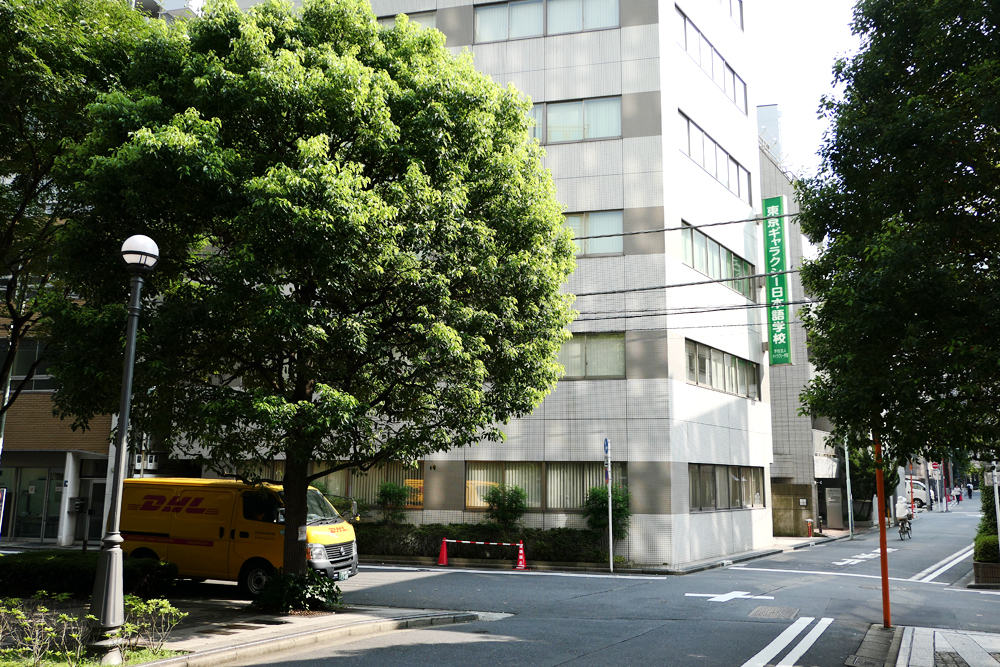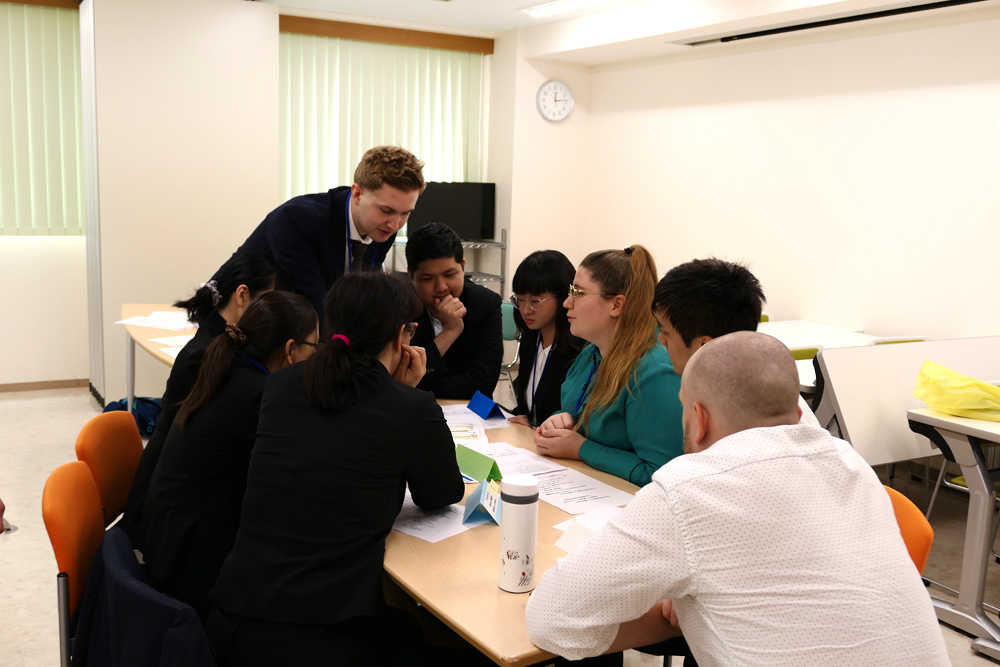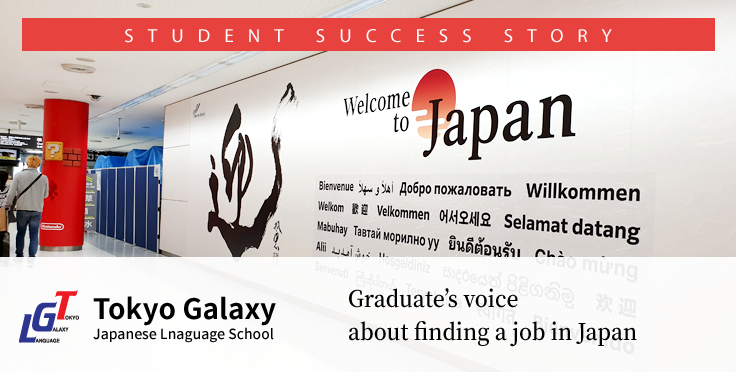Here we have a story of a Tokyo Galaxy Japanese Language School graduate Kou-san, who gained employment in Japan after working in Taiwan, his home country. He was at pre-intermediate level (passed the N3 level exam of JLPT) when he entered Tokyo Galaxy, and after a year of language training, he obtained a job in Japan. He took the Business Japanese Class during the last half of the year, and his attendance for the whole year was almost perfect.
Tell us about your background.
I completed graduate school and worked for four years in my home country before coming to Japan and entering Tokyo Galaxy. In February 2019, I was offered a job from a Japanese company which specializes in research and development of energy and battery technology; I feel very fortunate about it.
What motivated you to look for a job in Japan?
I was working in the research and development section at my previous company, and I had opportunities to engage with many Japanese companies. By doing so, I came to think that it would be valuable to learn from those Japanese people about various material development and manufacturing technologies. So I decided to study Japanese to be able to speak with Japanese R&D personnel.
I am willing to contribute to the company with my skills and knowledge; I can also utilize my Chinese speaking ability when it’s needed.

What kind of challenges did you face finding a job in Japan?
If you are aiming for a job in a Japanese company, that means you must write your resume and your cover letter in Japanese and, of course, your job interview will be conducted in Japanese. So you would have a hard time preparing for resumes, letters and interviews. You need to practice Japanese expressions used in job interviews repeatedly as much as possible.
What kind of help did you get from the Tokyo Galaxy’s Business Class?
I am very grateful for Mr. Kakihara’s support. He taught me the key points that I should be careful in practice interviews. He would always find some time to let me practice Japanese conversation with him, and that helped me a lot to acquire the technique for job interviews.
What did you find useful in your Business Program lessons? Which part of the class do you think will be most helpful for your career?
We practiced simulated dialogues of various business scenes, and that helped me the most. You act as an employee of a Japanese company, comprehend the situation accurately and respond correctly in the practice. Simulated dialogues are very useful to blend in well with your Japanese colleagues.
The Business Class include special classes such as manner lessons and communication skills training conducted by guest teachers. Was there anything that impressed you in those classes? What was helpful for you?
We played a game in the communication skills training class. It was like facing each other, and trying to listen to what your partner says while throwing and receiving a ball. It was a simple game, but I think I learned an important part of communication.

Was there anything that you tried by yourself outside of the school?
I worked after school at a ramen restaurant to increase opportunities to use my Japanese. I was able to speak and listen to our Japanese customers; my part-time job was a great training for me.
So, please tell us your overall impression of the Business Japanese Class.
So many subjects are included in the Business Japanese Class; simulated dialogues at business scenes, Japanese honorifics (keigo), business letter writing, career guidance, and so on. It might be difficult to master everything, but you can learn the basics and enhance your experience. In addition, I met many friends at the Business Japanese Class. We had a common goal of finding employment in Japan, so we were able to study and thrive together.
Is there any advice or suggestions you can give to the junior students?
If you are planning to be employed in Japan, you should get an early start, because you will need to take plenty of time to prepare for your job interviews. Contact your job counselor as soon as possible, and practice a lot.
We are happy if this interview helps those who are studying or planning to study in Japan, and also thinking about finding a job in Japan.
